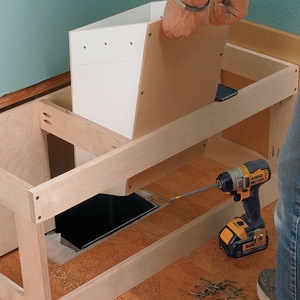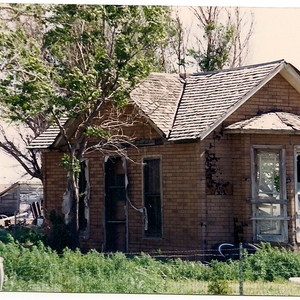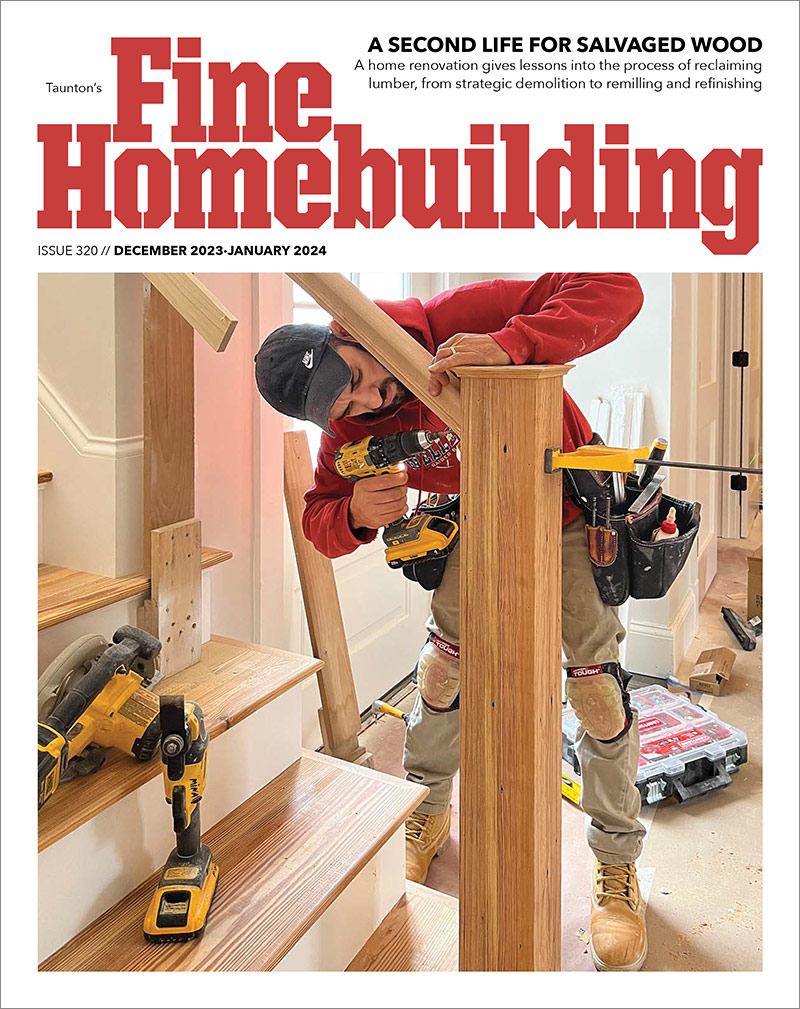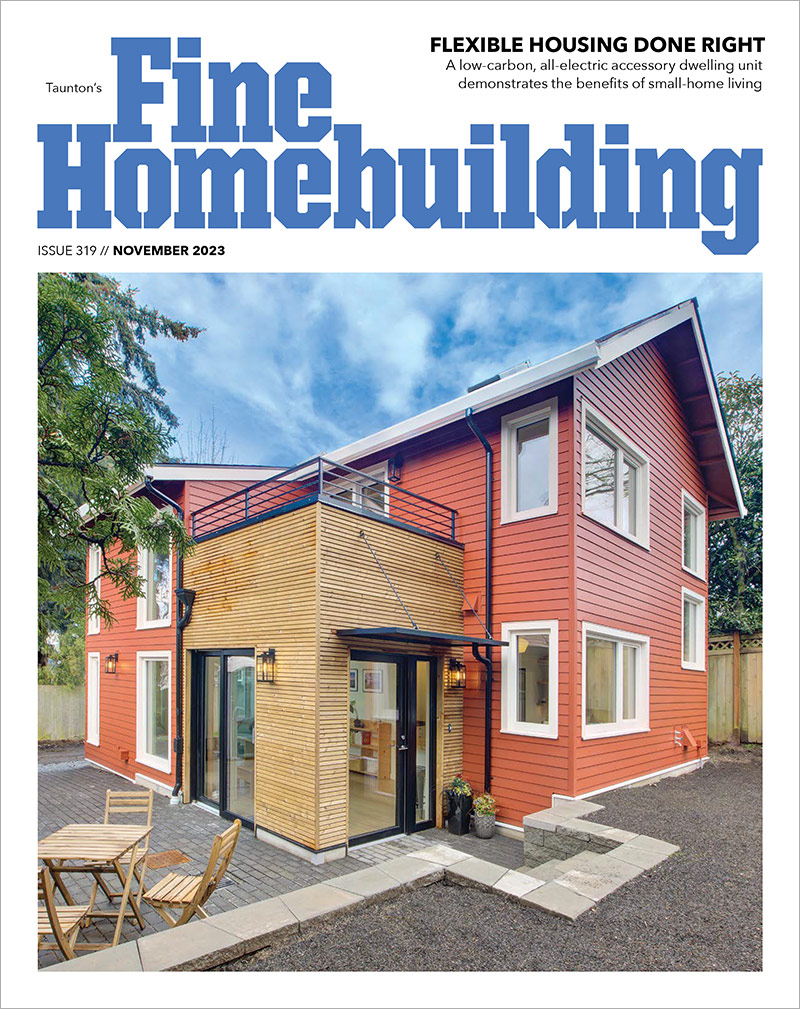are any of you or are you using an engineer that can wet stamp drawings ( wiht the needed fixes of course) that is reasonable. sounds like a great at home business or a big guy with lots of friends
need wet stamp for Oregon ( or your state)
think of it can e- mail drawings t midnight if needed
man . sitting on a nice lake, fisihng , looking at photos trying to figure out wher the boat is, and e-mailing enigneering
sounds good to me


















Replies
Adrian is an E-cabnet maker.
Or used to be, may have made his fortune & retired by now.........
Joe H
Sounds good, but I doubt it's too practical.
For starters, you'd have to have a good reputation and an existing practice. I doubt you could attract new clients that way.
On a lot of jobs, you have to make jobsite visits and meet with clients. So you'd still be limited to working with people fairly close to you.
And you could only deal with people who were WILLING to deal with drawings in digital format. I offered to email some drawings to an architect the other day and got a pretty snippy response in return. They said they couldn't deal with me directly in ANY form, since their contract wasn't with me. Emailed drawings were unacceptable - Had to go through the usual channels and submit hard copies to the GC.
So while it sounds good, I doubt it will work well in practice.
No man will make a great leader who wants to do it all himself, or to get all the credit for doing it. [Andrew Carnegie]
>So while it sounds good, I doubt it will work well in practice.
Much of the thin-shell industry is operating exactly that way. I think that some of the newer building technologies are using some of the newer communication technologies, be/c that's the only way to spread out the expertise--it's too thin in any one area of the country. Also, new technologies attract the early adopters, so I see more computer savvy builders and other professionals than the typical person might. Of all my clients, only one has not been computer literate, and his son was. I work with an engineer I've met just once--he lives in ID--and we work together as well as if he was in the next cubical. Of course there are times when site visits matter, but we're in an area where people are learning to communicate effectively in ways other than face-to-face.
Well, sure - But you're not normal........................(-:
.
I understand your point. But I think he was referring more to a "general practitioner" than a specialized field like yours.Strike the shepherd and the sheep will scatter. Robert Greene and Joost Elffers, "The 48 Laws of Power,"]
>But I think he was referring more to a "general practitioner" than a specialized field like yours.
Of course, but you could see it that we're the vanguard, and that with a new generation of computer literate builders and new technologies such as the 2-way cameras on computers, this is the direction of the future. An architect of my acquaintance who does traditional large-scale commercial now includes a laptop and digital camera in every bid. It saves her 90% of the site visits she'd otherwise have. They get a daily photo journal of progress and problems and can handle some of the problems remotely. Saves the client money, too. The trick is knowing which things need hands-on and which don't. So...it's already happening.
...with a new generation of computer literate builders and new technologies such as the 2-way cameras on computers, this is the direction of the future"
I have no doubt it's the direction of the future. As people who are resistant to technology retire, younger people who grew up with computers will find new ways of doing things that we probably haven't even thought of yet.
But I was referring to the present, and the way things are now. I get all kinds of resistance to anything outside of "the way it's always been done".Entrepreneuers must be allowed to retain the wealth they create because only they, collectively, can possibly know how to invest it productively among the millions of existing businesses and the innumerable visions of new enterprise in the world economy. [George Gilder]
>I get all kinds of resistance to anything outside of "the way it's always been done".
I don't doubt that. But my answer to hammertime is that what he mentions is in fact happening now (my engineer does non-thin shell stuff, for example). Maybe not in all locales and maybe it hasn't saturated the field yet, but it _is_ currently happening.
I think we're arguing the point from different perspectives.
You have the option of CHOOSING what engineer you want to deal with. You can pick someone who isn't "technophobic".
I have zero input into whom I deal with.
The guy who asked the original question may or may not have a choice, depending on his situation.If everyone in America was doing exactly the same thing you're doing, would our country be getting better or worse? That's a question for you and your conscience. [Zig Ziglar]
I've been answering hammertime's question and industry trends in general and not talking about what you do and don't encounter.
Hammertime,
>are any of you or are you using an engineer that can wet stamp drawings (with the needed fixes of course) that is reasonable. sounds like a great at home business or a big guy with lots of friends
Yes
>need wet stamp for Oregon (or your state)
Yes, he's licensed on OR. My state, too.
>think of it--can e- mail drawings at midnight if needed
Yes, except it was 2 am the other night when we faced a deadline and not midnight. That's awfully convenient, but it has downsides, too. The downside is that it's sometimes too convenient, and it's hard at times to leave the office be/c the office is right next to the dining room.
>> ... got a pretty snippy response in return.
Snippy responses are discouraging, especially when you're trying to be helpful. In this case, though, it sounds like it was a protocol problem, not a drawing format problem. If you had offered to send them hard copy by special messenger - which I understand you would never do, because the whole point of offering to e-mail the drawings was that e-mail is essentially free - they would have had to decline the offer for the reasons given. Not that that's an excuse for being snippy.
In another post you mention not being able to choose who do deal with. As an employee, I would say that's nearly true. If the boss wanted to move toward electronic drawings to cut costs or raise productivity, he could structure incentives to share some of the increased efficiencies with the customers who were willing to automate. In your position, you can't do that.
But you do still have some small freedom to structure your own incentives. If you have any customers who are willing to submit and receive electronic drawings, you can do their jobs first whenever you have a choice of equally urgent tasks. And let them know that's what got them to the front of the line.